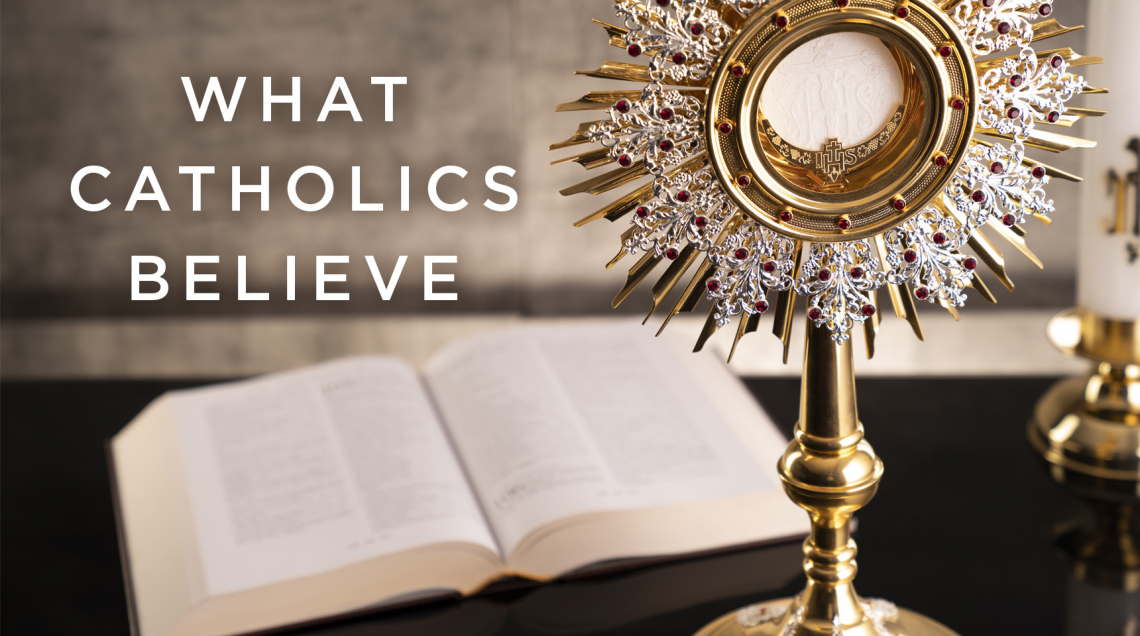What Catholics Believe - Chapter Thirty-Two

The Eighth Commandment: Tell the Truth
“You shall not bear false witness against your neighbor.” Exodus 20:16
“The disciple of Christ consents to ‘live in the truth,’ that is, in the simplicity of a life in conformity with the Lord’s example, abiding in his truth.” Catechism of the Catholic Church, 2470
“Yes, my guard stood hard when abstract threats
Too noble to neglect
Deceived me into thinking
I had something to protect.” - Bob Dylan
This commandment’s meaning seems obvious: judicial witnesses are not to lie under oath to obtain the condemnation of the innocent. The Scriptures refer to such false witnesses as “witnesses of violence.” A false witness can bring about “judicial murder” as in the case of Naboth, whose death was arranged by Jezebel so her husband, King Ahab, could procure Naboth’s ancestral land. It can also cause other violent or unjust results. The Psalms and the Wisdom literature show a deep concern with false witnesses and the harm they cause, especially to the poor and vulnerable.
However, the commandment’s meaning is broader than this. This broadening can be seen in the Pentateuch itself (the first five books of the Old Testament). Passages which are intended as commentary on this commandment display a concern to protect the vulnerable from the dangers of false testimony. These same passages also insist that the widow, the orphan, and the foreigner (and even animals!) be treated with mercy beyond judicial settings. The rationale? “Remember that you were slaves in Egypt, and the Lord, your God, redeemed you from there; that is why I command you to do this” (Deuteronomy 24:18). Israel knows that all people are like slaves in need of freedom. God has come to bring about this liberation. God’s people are called to free others through witnessing to the truth and to not endanger anyone with lies. Otherwise, they bear false witness to God.
History is filled with instances of this kind of false witness. People have “testified” against the full humanity of their sisters and brothers in order to justify acts of oppression and violence against them. All “name-calling,” from the school playground to the halls of Congress, leads inevitably to some kind of oppression and violence.
Why would anyone choose to bear false witness? It’s a story as old as humanity itself. Because of original sin, a usurper is trying to take the place of the Holy Spirit in the temple of our hearts: our small, wounded, weak ego. Our ego senses that its claim to the throne is weak. Like Herod, it reacts to any perceived threats to its rule. Since the ego’s rule is based on self-deceit, people who present some inconvenient truths provoke a virulent defensive reaction. Deceit is maintained with deceit and followed by violence. We lash out with lies or scapegoating. We bring up “dirt” about people that others may not know and have no right to know. We claim to be the “real” Catholics and malign others who have differing perspectives. We have the warped notion that “if I sink your boat, my boat must rise.” Lies engender lies. They harm their victims and enslave the liars themselves.
What might true witness look like?A life of true witness is centered on “the simplicity of a life in conformity with the Lord’s example, abiding in his truth.” Søren Kierkegaard wrote that the saint is someone who “wills one thing.” This “one thing” is our “yes” to the Lord’s invitation to take up our cross daily and follow Him. By “carrying our cross,” we stake our very lives on the truthfulness and faithfulness of God alone. The humble acceptance of this truth sets us free. This means an emptying and healing of the addictive ego, a turning to the Lord who, in His great mercy, forgives our sins and makes us all witnesses to His love and faithfulness. God’s mercy empowers us to speak the truth – not merely in words but in deeds and attitudes and intentions. Moreover, we speak the truth in love. Speaking in this way, we call all people and all things by their true names, thus opening the door to reconciliation and mercy. The true witness adopts, by grace, the kenotic truthfulness of Christ Himself:
“Have among yourselves the same attitude that is also yours in Christ Jesus, Who, though He was in the form of God, did not regard equality with God something to be grasped. Rather, He emptied Himself, taking the form of a slave, coming in human likeness; and found human in appearance, He humbled himself, becoming obedient to death, death on a cross. Because of this, God greatly exalted Him and bestowed on Him the name that is above every name, that at the name of Jesus every knee should bend, of those in heaven and on earth and under the earth, and every tongue confess that Jesus Christ is Lord, to the glory of God the Father" (Philippians 2:5-11).










